The OCD Institute of Texas offers a residential program for individuals 18 and up. This program is an intensive treatment program that runs 7 days per week with support available 24/7. The treatment programming for this program runs from 9-4pm M-F and 9-3pm on weekends with two scheduled evening outings per week. We are ready and available to answer any questions about our Residential Program. Call our admissions line directly at: (832) 900-8687
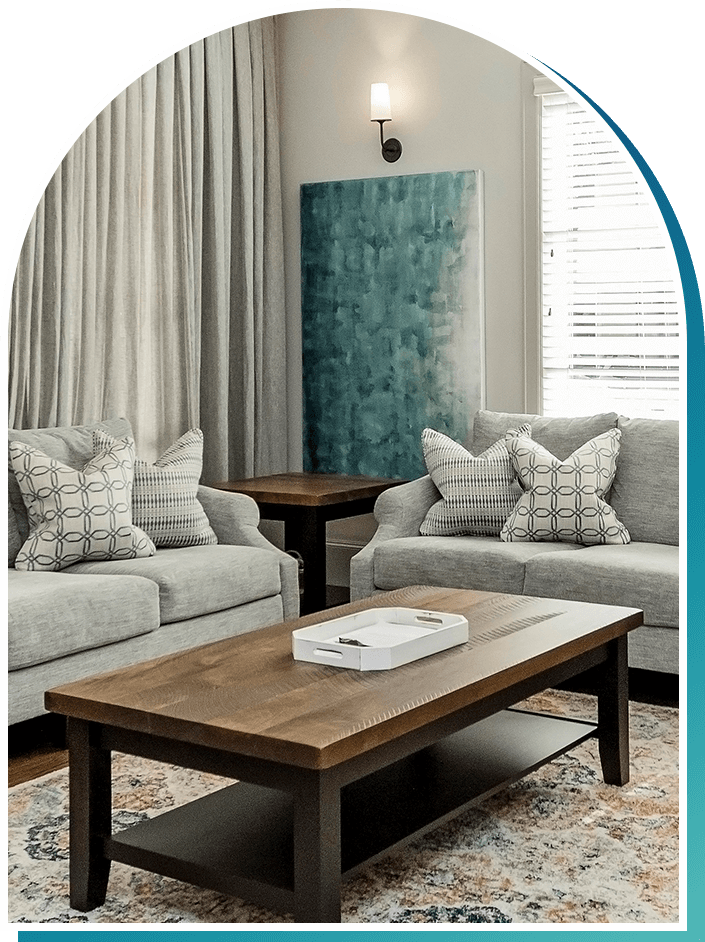

Individualized behavioral plans that guide your work in the program are developed specifically for you with your individual behavioral therapist.

Your individual treatment team includes your behavioral therapist, family therapist and psychiatrist.

Individual and group therapy utilizes proven behavioral treatment methods, like ERP.
Letting go of your OCD starts by picking up the phone. Call us today at (832) 900-8687
OCD Institute of Texas offers highly specialized intensive treatment for adults with severe OCD, anxiety, and other related disorders. Our residential program operates 7 days a week with programming from 9am-4pm M-F and 9am-3pm on weekends. Evening outings are scheduled twice per week. Our residential program is led by clinicians who specialize in the treatment of anxiety, OCD and related disorders.
Our residential program offers specialized intensive treatment tailored specifically for you. Your dedicated treatment team consists of a behavioral therapist, family therapist, and psychiatrist. The typical length of stay at the program is 10-12 weeks, however, this can vary depending on the needs of the patient. Since every patient’s stay is being tailored specifically for them, there is no minimum or maximum length of stay. Individualized behavioral plans are created so that all of OCDI Texas staff can support your specific treatment needs and help move you towards meeting your treatment goals.
Individuals who may benefit from our residential program include those:
Our treatment model focuses on values-based goals that promote individual functioning.
The program is designed to assist individuals in transitioning into a more productive lifestyle through evidence-based treatment (with an emphasis on exposure and response prevention therapy for OCD) and individualized behavioral plans that are customized to the needs of each patient. Each day, individuals in the program receive support in carrying out their behavioral treatment plans.
Program staff is specially trained to help patients to enhance response prevention, assist with “ritual free” activities of daily living, and implement behavioral therapy techniques.
The home-like environment of the clinic increases the opportunity to practice exposures in realistic situations and build confidence in maintaining gains and achieving personal goals.
Residential patients attend programming and after-hours among other residents creating a built-in community to share common experiences and challenges. This therapeutic benefit creates a motivating atmosphere for people in all stages of treatment.
Please note: Our intensive treatment programs are not appropriate for individuals who have active addictions, eating disorders, psychosis and/or are actively suicidal. Individuals may be referred elsewhere to receive treatment for these conditions prior to engaging in our program. We are not able to accommodate any acute medical needs.
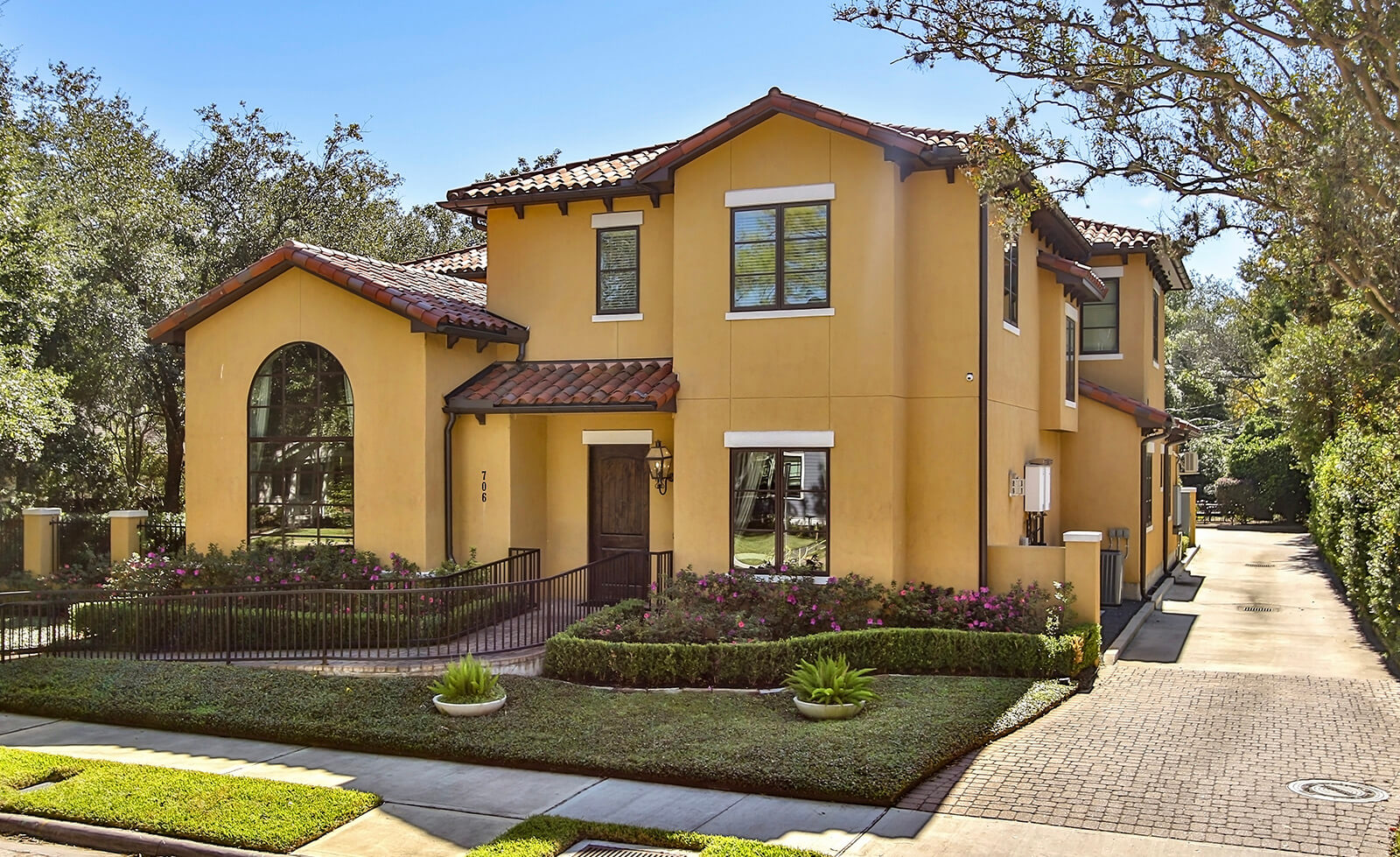
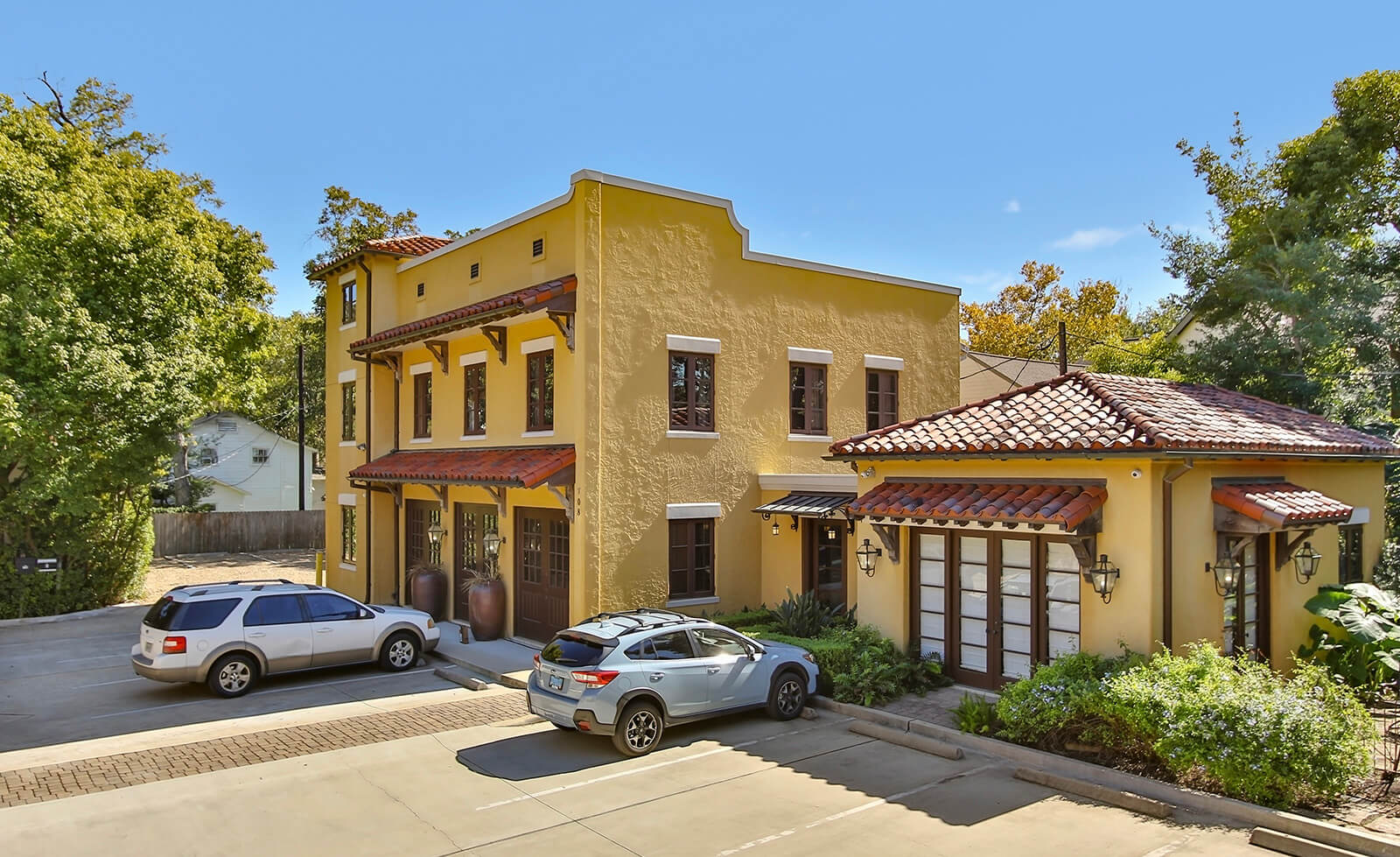
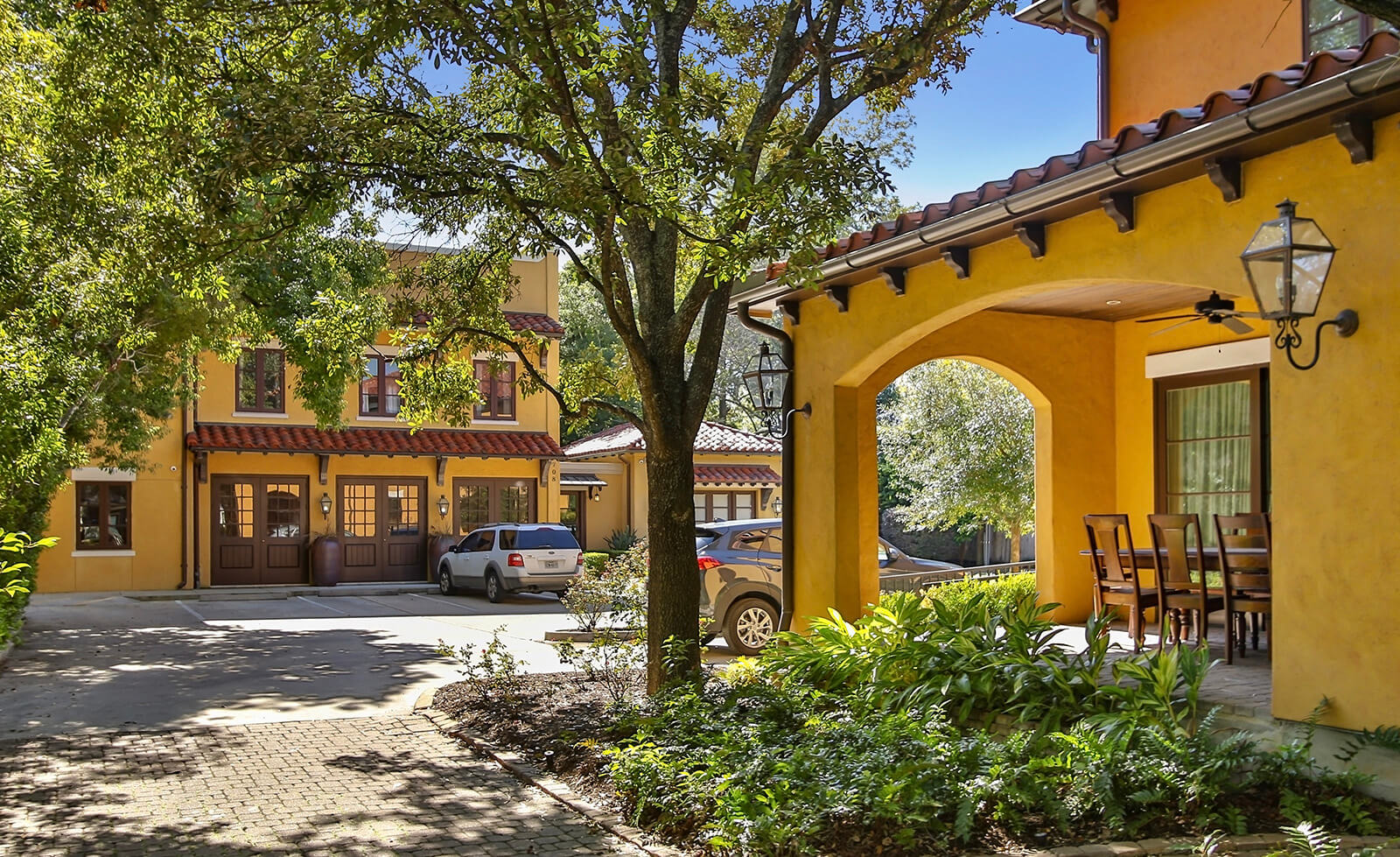

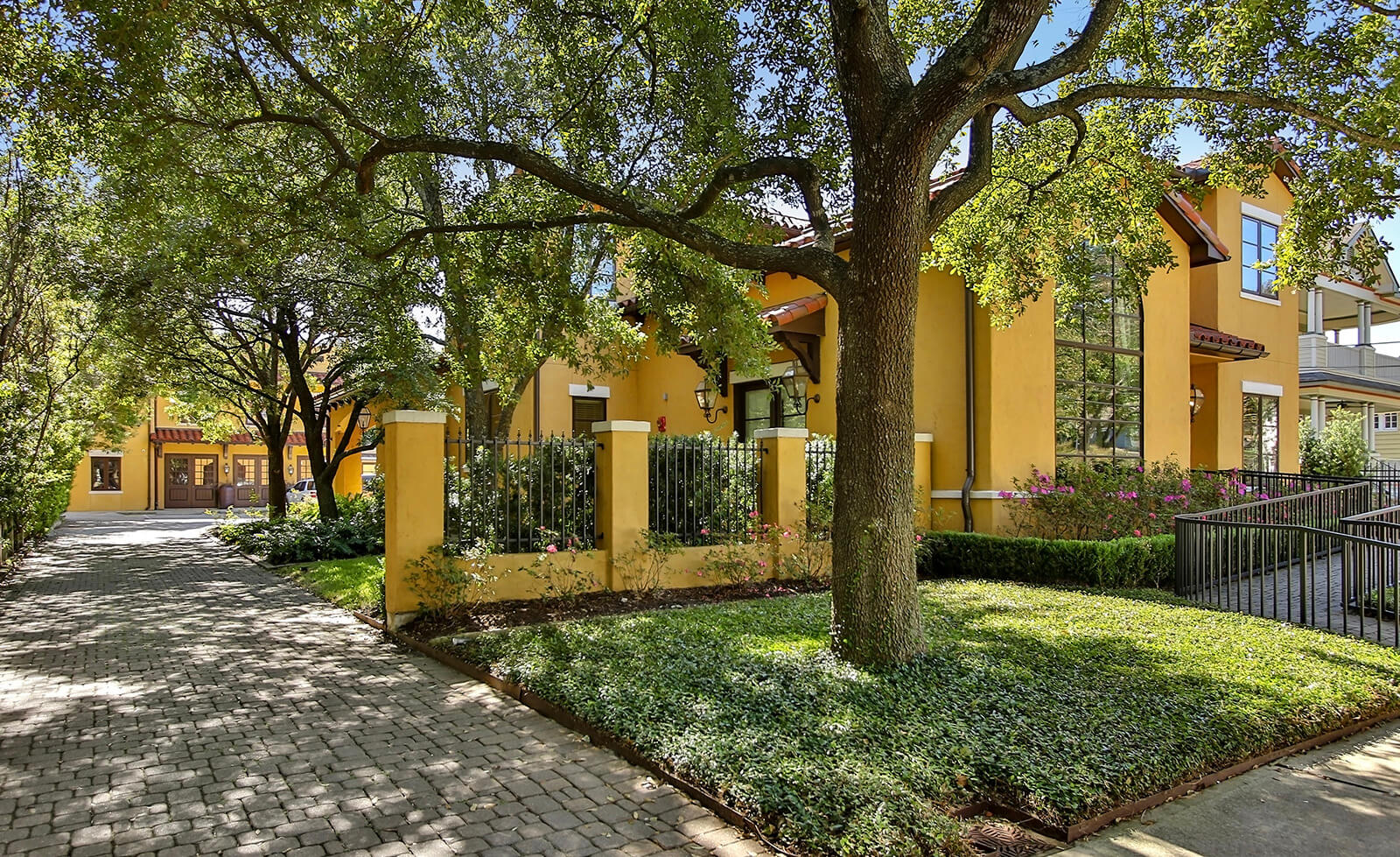
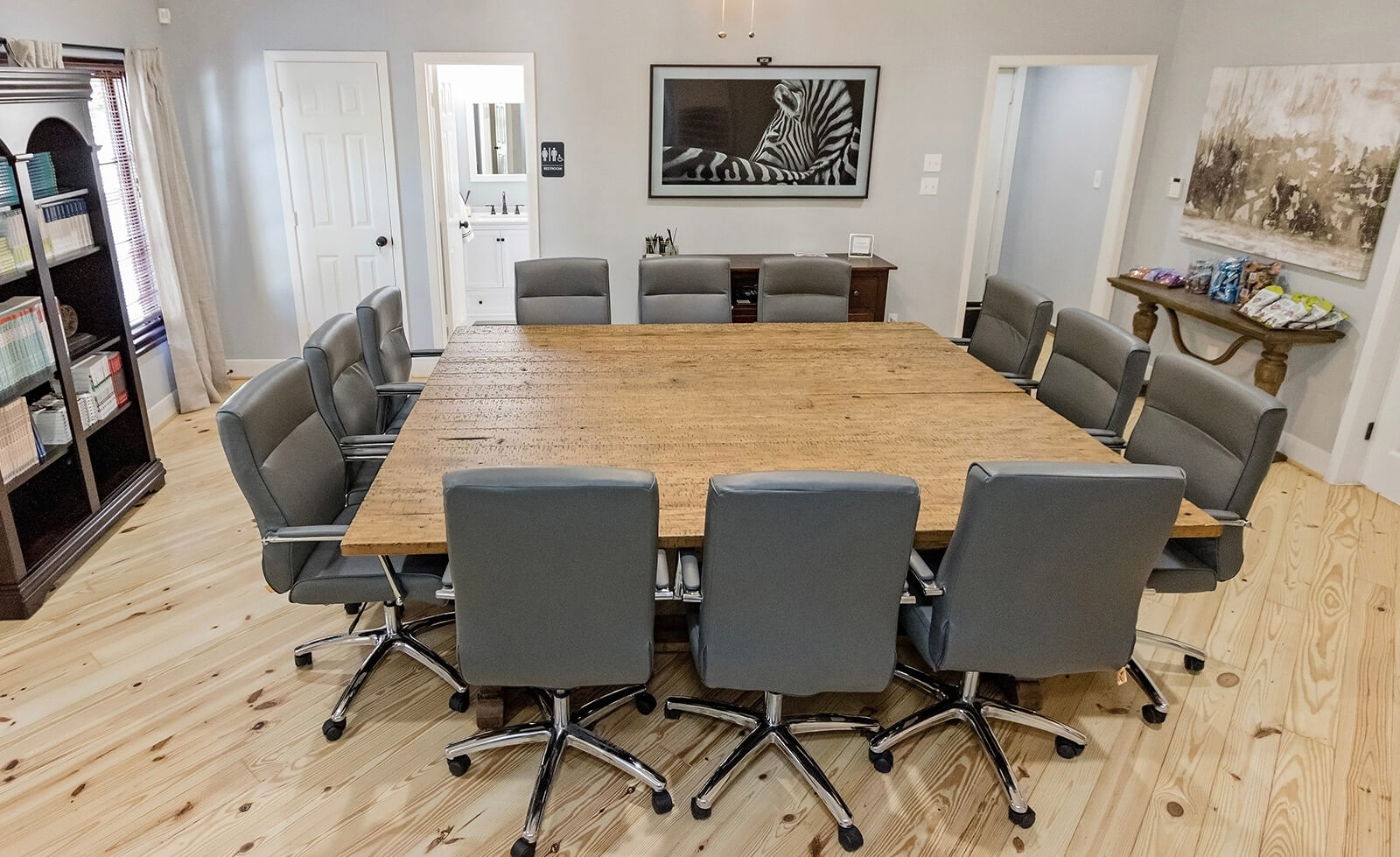
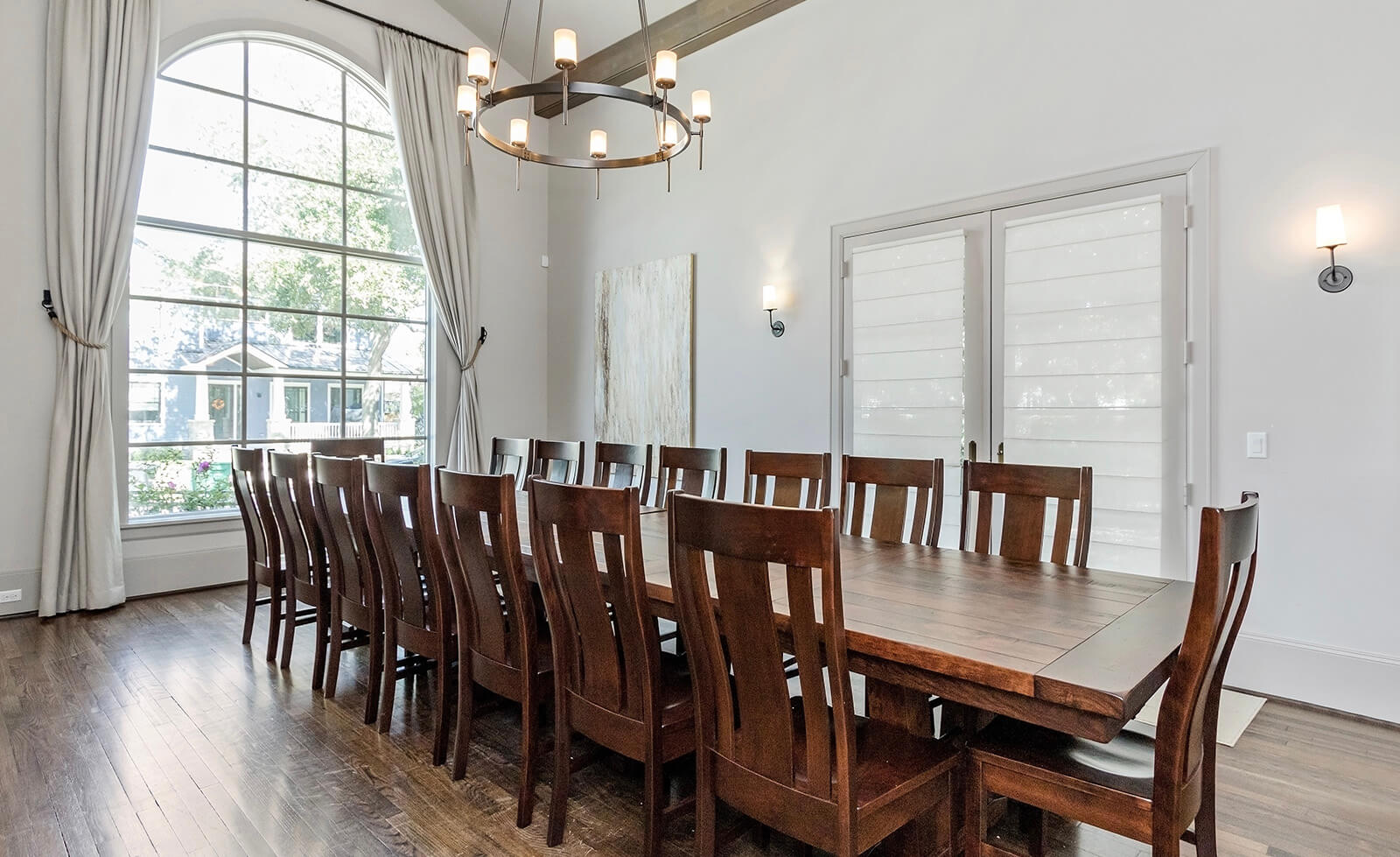

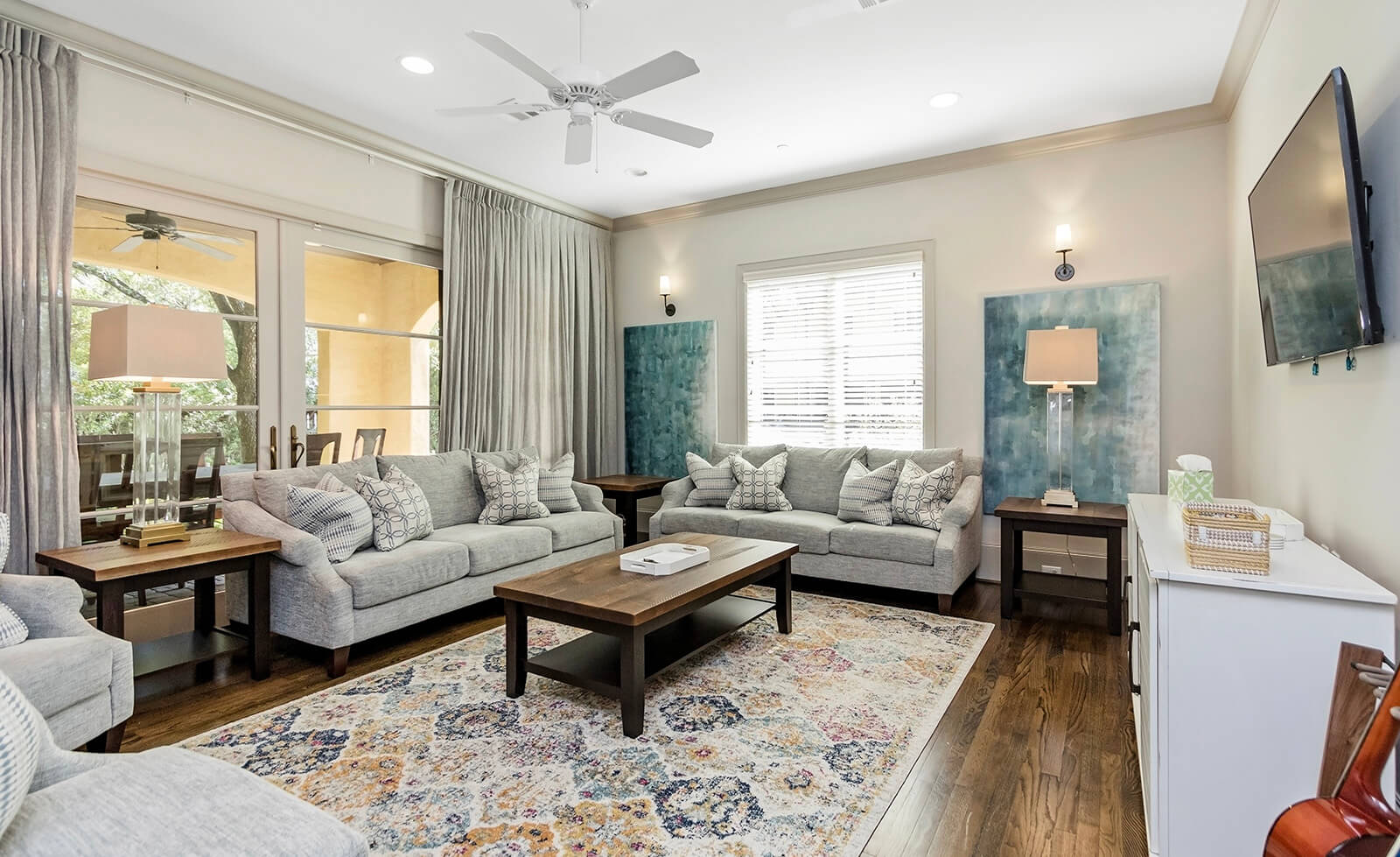

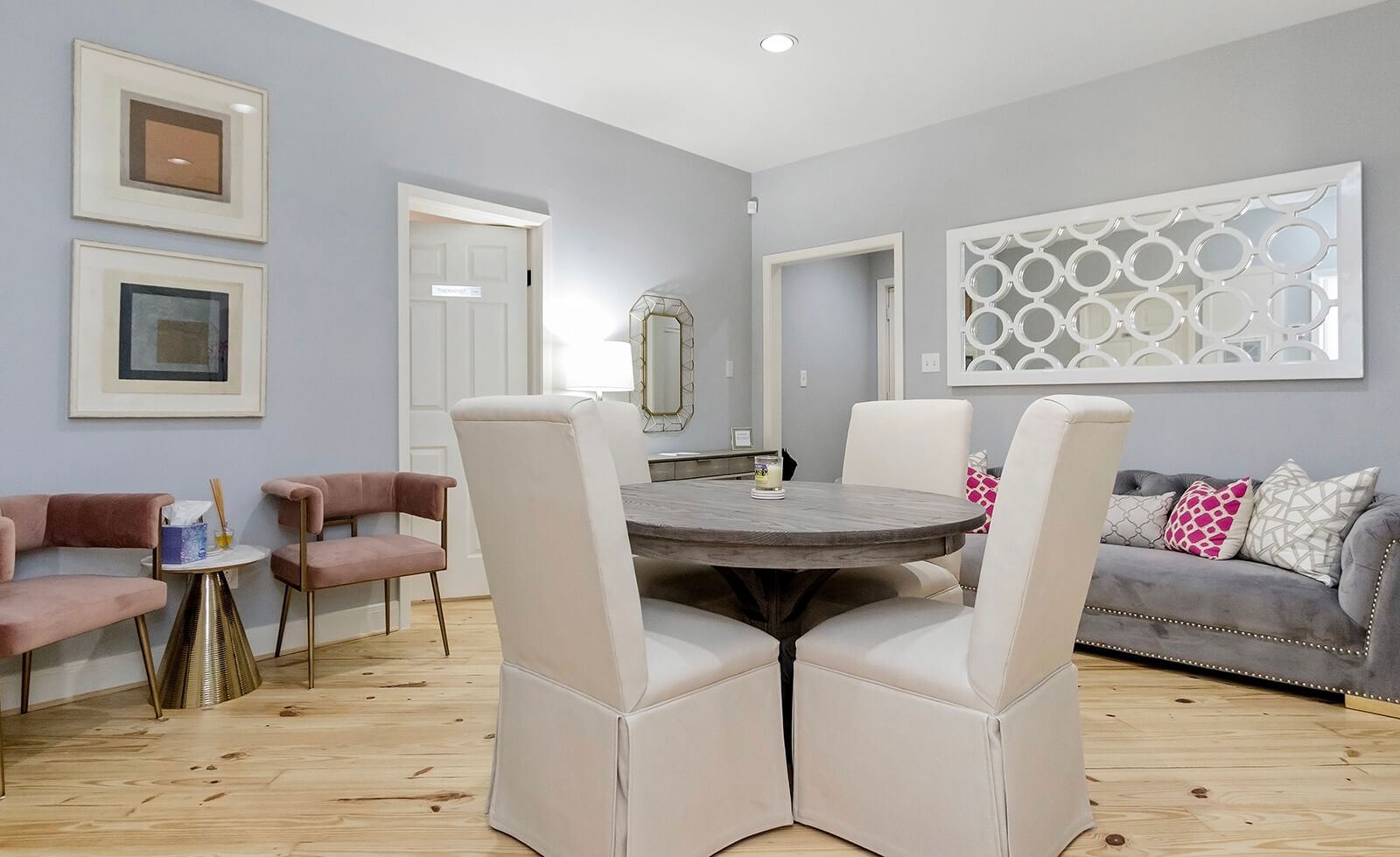
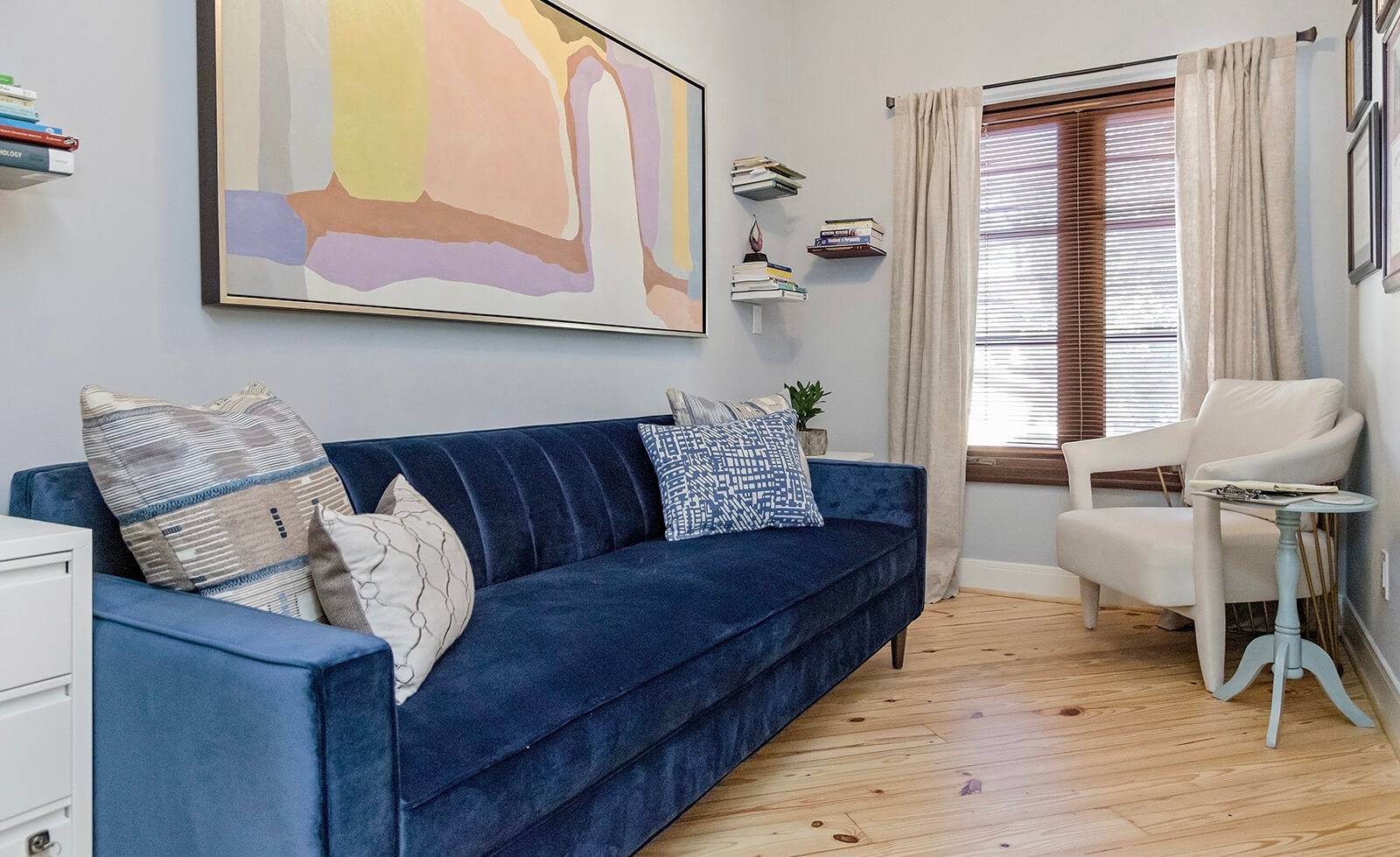
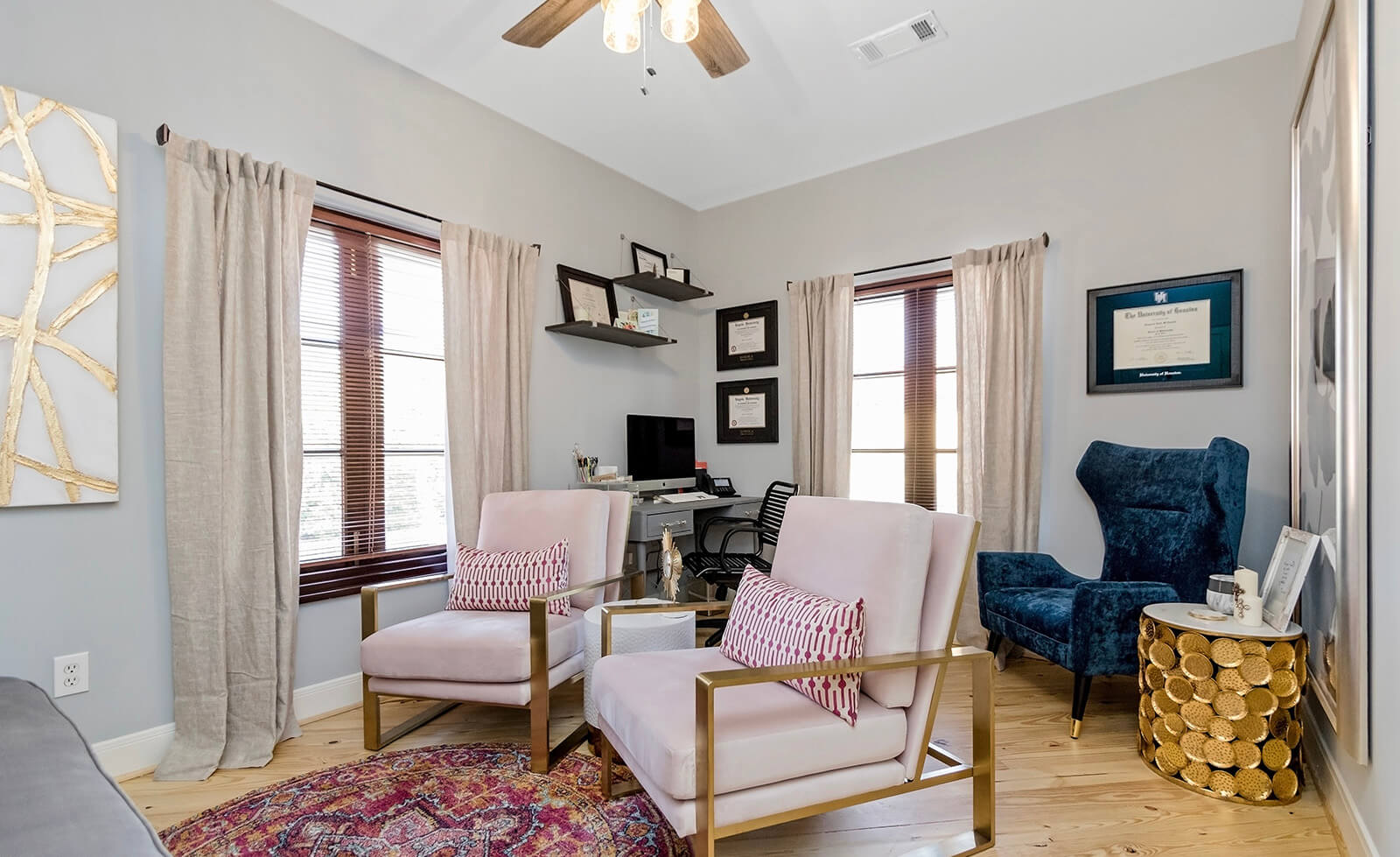
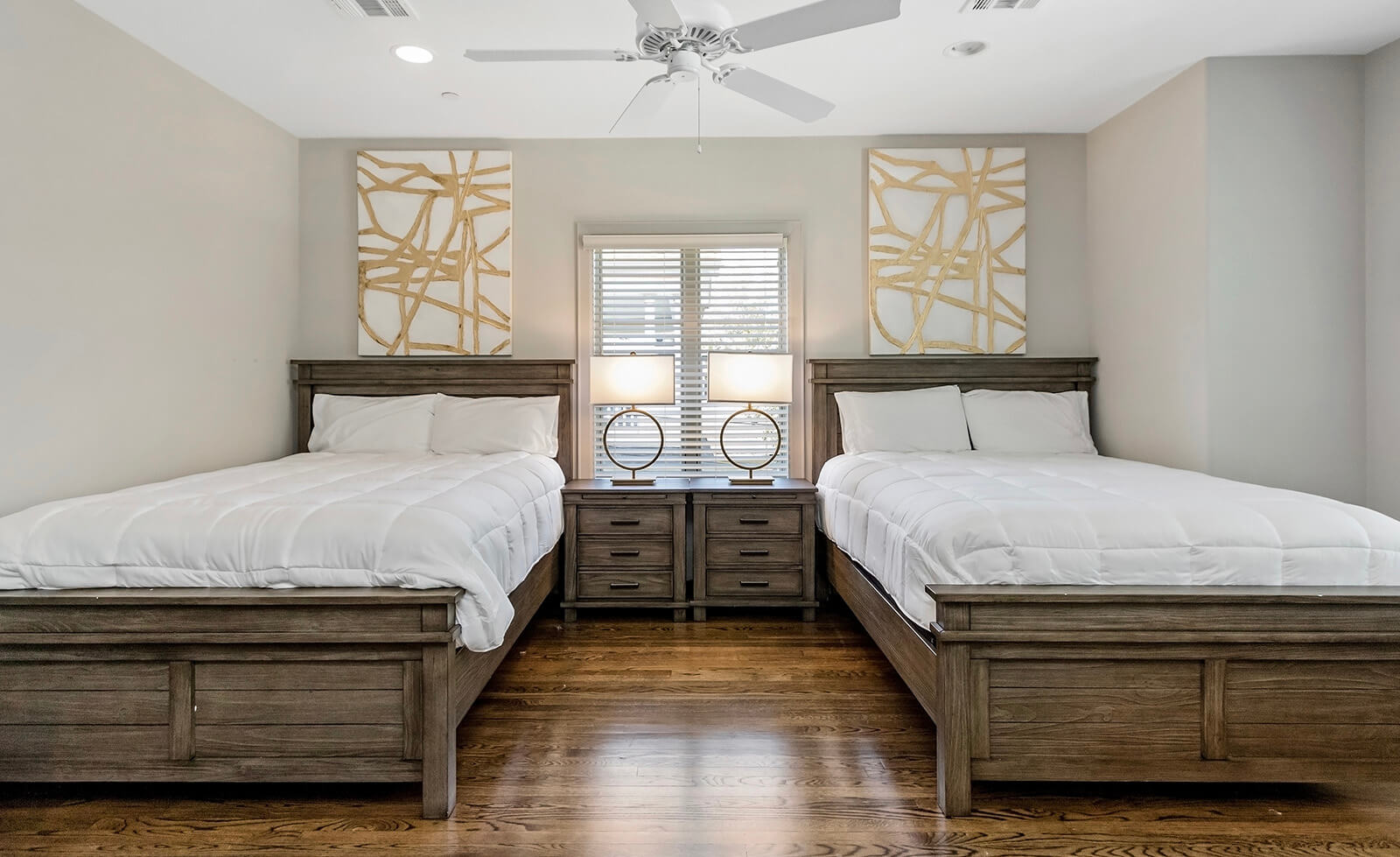
OCD Institute of Texas delivers leading-edge OCD and anxiety treatment, using proven behavioral therapy models. Exposure and response prevention (ERP) and Cognitive Behavioral Therapy (CBT) is the main focus of our treatment programming.
Patients work individually with a behavior therapist for individual therapy and customized behavior planning. Patients meet with their behavior therapist three times per week and with their family therapist once per week typically. Sessions with our team psychiatrist are offered as needed.
Treatment groups include a variety of educational and active groups with application. ERP sessions which are held 4 hours per day are led by our trained clinicians, students, and/or staff. Details of our schedule can be seen below by clicking the tab labeled “schedule”.
Our residential program includes:
*Please note these are the average number of appointments/groups and are subject to change.
The initial weeks of treatment begin with a collaborative approach designed to understand individual symptoms. Clinicians and staff conduct behavioral observations to inform treatment planning. During this time, the team focuses on diagnostic clarification, treatment planning, and evaluation of program fit. Simultaneously, patients are beginning to understand their symptoms and engage in recommended treatment approaches. Please note that we may review alternative treatment options if we do not feel our program is the right fit for the individual at this time.
After the initial treatment phase, patients work individually with their provider to develop a behavior plan and begin to work toward their treatment goals with staff support. As time in the program continues, individuals are encouraged to work more independently to promote ongoing symptom management upon discharge from the program. Patients and the family work together with their family therapist to develop treatment goals. Family therapy takes place weekly where psycho-education, support, and plans are discussed and implemented.
Discussion and decisions around aftercare take place with the clinical team, patient, and family (upon the patient’s request). Once a discharge date is set, discharge planning begins which includes transference of clinical care, schedule planning and goal setting.
OCD Institute of Texas is a voluntary treatment program; therefore, patients should contact us directly to begin our admission process. Family members and providers are welcome to call us as well to learn more about admissions and our program. To learn more about admission to our residential program, call us today at 832-900-8687.
Here’s our step-by-step guide to admission:
OCDI Texas is a self-pay treatment program, therefore we do not accept payment directly from third-party providers (e.g., insurance or loan companies) unless a single case agreement is in place.
While we are a self-pay program, our patients often utilize insurance for payment reimbursement or work with their insurance company to secure a single case agreement.
The fee for the partial hospital program is $875 per day. The fee for the residential program is $1500 per day.
Cash, check, or credit card are accepted at the time of service. Patients are responsible for all fees.
For questions about working with your insurance carrier while in our program, please call our office manager at 832.900.1271.
Patients in our partial hospital residential programs participate in daily group therapy sessions. Group sessions cover an array of topics, such as skill building, symptom management, treatment motivation, and more.
AM Group for Fundamentals: This group educates patients about evidence-based treatment for OCD with succinct and clear psycho-education on anxiety, OCD, OCD treatment and symptom management. Patients learn through various teaching styles the basics of anxiety, OCD, the OCD cycle and ERP.
PM Group for fundamentals titled: Treatment for You Group discussion, role-plays, and behavior therapy skills are put into practice focused on OCD and ERP. Afternoon fundamentals group practices application of concepts outlined weekly below both individually and in a group format. AM fundamentals focuses on education of each concept and PM group focuses on the concept in action for our patients.
Weekly Module Schedule:
Week 1: Relationship with Anxiety + the OCD Cycle
Week 2: Obsessions and Compulsions
Week 3: Mental Compulsions and Avoidance
Week 4: Habituation, Inhibitory Learning and Distress Tolerance
Week 5: Core Fears
Week 6: ERP and ERP concepts (white knuckling, etc.)
Week 7: ERP as a lifestyle, Greater Good
Week 8: Relapse Prevention/Symptom Management
The ACT groups are broken up into a morning group that focuses on understanding the basic tenets of ACT (contact with the present moment, values, committed action, self as context, defusion, and acceptance), while the afternoon group focuses on putting these concepts into action and learning how to integrate them in our lives.
The two primary goals of ACT group are:
Patients learn and practice acceptance of unwanted inner experiences
Patients identify their values and how to commit to living in a value-driven direction by being psychologically present
Weekly Module Schedule:
Week 1: Orientation to ACT
Week 2: Choice Point
Week 3: Values
Week 4: Mindfulness
Week 5: Defusion
Week 6: Self-As-Context
Week 7: Acceptance
Week 8: Committed Action
Anxiety and OCD can interfere significantly with social functioning. This group focuses on strengthening skills for interpersonal effectiveness and relationship building. Through psychoeducation, games, role plays, and experiential exercises group members practice and experiment with skills to build confidence and competency. Topics include assertiveness, communication, giving feedback, vulnerability/openness, boundary setting, initiating friendships, and facilitating patient led family accommodation reduction plans.
Weekly Module Schedule:
Week 1: Emotional Expression
Week 2: Assertiveness
Week 3: Boundaries
Week 4: Relationship Building
Week 5: Vulnerability and Openness
Week 6: Communication with Treatment Team
Week 7: Accommodation
Week 8: Communication
This group focuses on teaching and practicing techniques and coping strategies that can help patients cope with different emotions.
Utilizing principles from Cognitive Behavioral Therapy and Dialectical Behavior Therapy, group members will be taught a variety of coping mechanisms for a wide range of uncomfortable emotions and situations.
Patients will learn to understand and identify their emotions, skills to change unpleasant emotions, how to tolerate extreme emotions without acting on them, and how to cope in advance with challenges. Additional skills include validation and dialectics.
The afternoon group, Skills for Life, includes active practice of the morning content.
Weekly Module Schedule:
Week 1: What Do Emotions Do for You
Week 2: What Gets in Your Way
Week 3: Mindfulness
Week 4: Opposite Action, Coping Ahead
Week 5: Taking Care of Your Body
Week 6: Validation
Week 7: Dialectics
Week 8: Intro to Distress Tolerance
Week 9: Distress Tolerance Skills
Week 10: Radical Acceptance, Willingness, Willfulness
AM Group for Cognitive Behavior Therapy:
This group focuses on providing clear psychoeducation, building a strong foundation and rationale for evidence-based treatments, and offers a space for patients to ask questions about ERP and other behavioral techniques, especially as they relate to anxiety and OCD. Patients broadly learn and review the basics of cognitive behavior therapy (CBT), cognitive distortions, mood monitoring, goal setting, behavior activation, and cognitive restructuring as it relates to thier mood, anxiety, and treatment process. Additionally, this group provides patients an opportunity to participate and apply techniques during individual and group-based activities (e.g., group discussion, role-play, and worksheets) as they learn.
Week 1: What is CBT
Week 2: Problem Solving and SMART-goal Setting
Week 3: TRAP Model and TRAC Model for Depression
Week 4: Behavioral Activation
Week 5: Core Beliefs and Schemas
Week 6: Introduction to Cognitive Restructuring
Week 7: Introduction to Behavioral Experiments
Week 8: Self-Compassion
PM Treatment Processing Group:
This is an open discussion group where patients have the space to reflect on their treatment and experiences from the week, ask questions from peers and group leader, and offer and receive support or encouragement. Some discussion topics include, but are not limited to, treatment progress, approaching difficult exposures, feelings of failure/success, stages of change, and general treatment questions. Patients are encouraged to share experiences with each other to challenge stigma around mental health issues while simultaneously fostering greater understanding of the treatment process, facilitating emotional processing, and increase motivation.
Life in Recovery
This is an open discussion group where we aim to meet patients where they are, spend time answering questions, having an open dialogue around treatment and any confusion they have. This is a time to reinforce various treatment concepts and have patients apply treatment knowledge while addressing any current questions patients present with. The following descriptions below provide an outline for more structured groups and topics.
Weekly Module Schedule:
Week 1: OCD Overview
Week 2: Clarification of Behavioral Terms
Week 3: Acceptance
Week 4: Identity
Week 5: Sex, Intimacy, and OCD
Week 6: Grief
Week 7: Intrusive Thoughts
Week 8: Scavenger Hunt
In this group patients discuss the benefits of living a life that is aligned with our values, doing what truly matters most to us, and showing up each day as the person we want to be. We will talk about the obstacles and difficulties that clients often face due to OCD or other mental disorders, individuals away from what truly matters most, such as family, social life, careers, independence, and peace of mind. We will also discuss how to move more in the direction of what matters most while also doing what you can to not allow OCD, uncomfortable emotions, or intrusive thoughts to dictate how you proceed in your life.
MONDAY | TUESDAY | WEDNESDAY | THURSDAY | FRIDAY | SATURDAY | SUNDAY | |
8:00am | *Breakfast | *Breakfast | *Breakfast | *Breakfast | *Breakfast | *Breakfast | *Breakfast |
8:45am | Goal Setting | Goals Group | Goals Group | Goals Group | Goals Group | ||
9:00am | Fundamentals | ACT | Interpersonal Behavioral Therapy | Emotion Regulation | CBT | Life in Recovery/Intimacy | Values Based Living |
9:45am | ERP Check-in | ERP Check-in | ERP Check-in | ERP Check-in | ERP Check-in | ERP Check-in | ERP Check-in |
10:00am – 11:00am | ERP | ERP | ERP | ERP | ERP | ERP | ERP |
12:00pm – 1:00pm | *Lunch | *Lunch | *Lunch | *Lunch | *Lunch | *Lunch | *Lunch |
1:00pm – 2:00pm | Treatment for You | Values in Action | Interpersonal Skills in Action | Skills for Life | Treatment Processing Group | ERP | ERP |
2:00pm – 4:00pm | ERP | ERP | ERP | ERP | ERP | ERP (Until 3pm) | ERP (Until 3pm)| |
4:00pm – 6:00pm | Free Time | Free Time | Free Time | *Community Meeting | Free Time | Free Time | Free Time |
6:00pm | *Dinner | *Dinner | Group Outing | *Dinner | *Dinner | Group Outing | *Dinner |
Click here to learn more about our day program.
OCD Institute of Texas is in the heart of the Houston Heights neighborhood in Houston, Texas. Our program is located within a residential / outpatient setting in a warm and comfortable location.
The program address is:
708 E. 19th Street
Houston, Texas. 77008
All of our length of stays are patient-specific and completely individualized. There is no minimum or maximum length of stay, instead lengths of stay are determined on patients’ needs to promote successful outcomes and symptom maintenance. We ask patients to be willing to commit to 10-12 weeks of intensive care, though the stay could be shorter or longer depending on the patient’s needs. We do not encourage patients to enter our program if they cannot commit to 8-12 weeks of programming if that is what is recommended for their treatment.
Different options include:
Patients in our residential program may step-down to our PHP level of care, dependent on patient’s needs in our program
We can work in conjunction with previous treatment providers to assist in continuity of care
We can refer to an outpatient provider near their location to provide continuity of care
Families are invited to visit, share their experiences, and learn how to support the patient in maintaining gains per the clinic’s visitor policies. Visitors are expected to follow all the program guidelines.
Family treatment includes family therapy and/or other contact with our family therapist.
Note: Due to the COVID-19, our visitation policy has changed. Please ask about our current policy in place at the time of your admission.
Travel to the Program:
The best airports to travel to are IAH or Houston Hobby. Both airports are roughly a 30-45 minute drive from our facility. We are located inside the city limits of Houston.
Hotels & Accommodations:
There are multiple hotel and accommodation options in the Houston area. There are also ample Airbnb / home rental options in the Houston heights area if you want to be close by the clinic.
The clinic address is found below for location reference:
708 E. 19th St.
Houston, Texas. 77008
The residence has a full kitchen for prep and cooking.
Residents are expected to prepare their own breakfast and lunch daily. Groceries are purchased and provided by the program. If residents have specific food preferences or needs, they are encouraged to purchase their own items and can do so at any time.
Family-style prepared dinners are provided on weeknights (excluding outings). Since we cannot meet all food restrictions and preferences, residents are welcome to opt-out and prepare their own meals at any time.
Two times per week, residents and staff eat food out during our biweekly outings, dependent on current policies in place. These restaurants/meals are decided upon by residents during community meeting which takes place weekly.
Houston is the country’s fourth largest city, and there are many opportunities for recreation and amazing food! Within a few miles of the clinic, there are museums, the Houston Zoo, an outdoor theater, movie theaters, parks, and jogging trails. Patients are free to engage in activities of choice independently (as long as they adhere to our program policies and curfews) after the treatment day.
There are two scheduled recreational outings each week that our residents are encouraged to attend. Residents meet each week to decide on outings for the upcoming week, which typically consist of both dinner out and recreational activities. Staff join this activity and transportation is provided.
We recommended patients bring the following items:
Note: Bed linens, towels, and pillows are provided
*Please note we are located in the city of Houston where there are ample stores and shopping nearby should you need to purchase any additional items. Necessity shopping takes place weekly.
Patients in our residential program are asked to fully engage in each treatment day. If full treatment engagement is not present, patients and providers will discuss options to enhance treatment engagement, and support plans may be put in place. While in our residential program, any use of illicit drugs or alcohol is prohibited at all times.
These items are not allowed on campus:
We are looking forward to hearing from you and answering any questions you may have! For general inquiries and questions about our outpatient services please call (713) 526-5055. For inquiries and questions about our intensive treatment options please call our admissions department directly at 713-999-4550
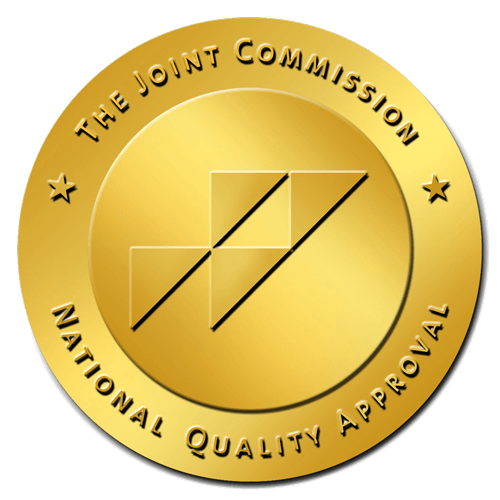
© 2024 OCD Institute of Texas. All Rights Reserved. Powered By: Beefy Marketing